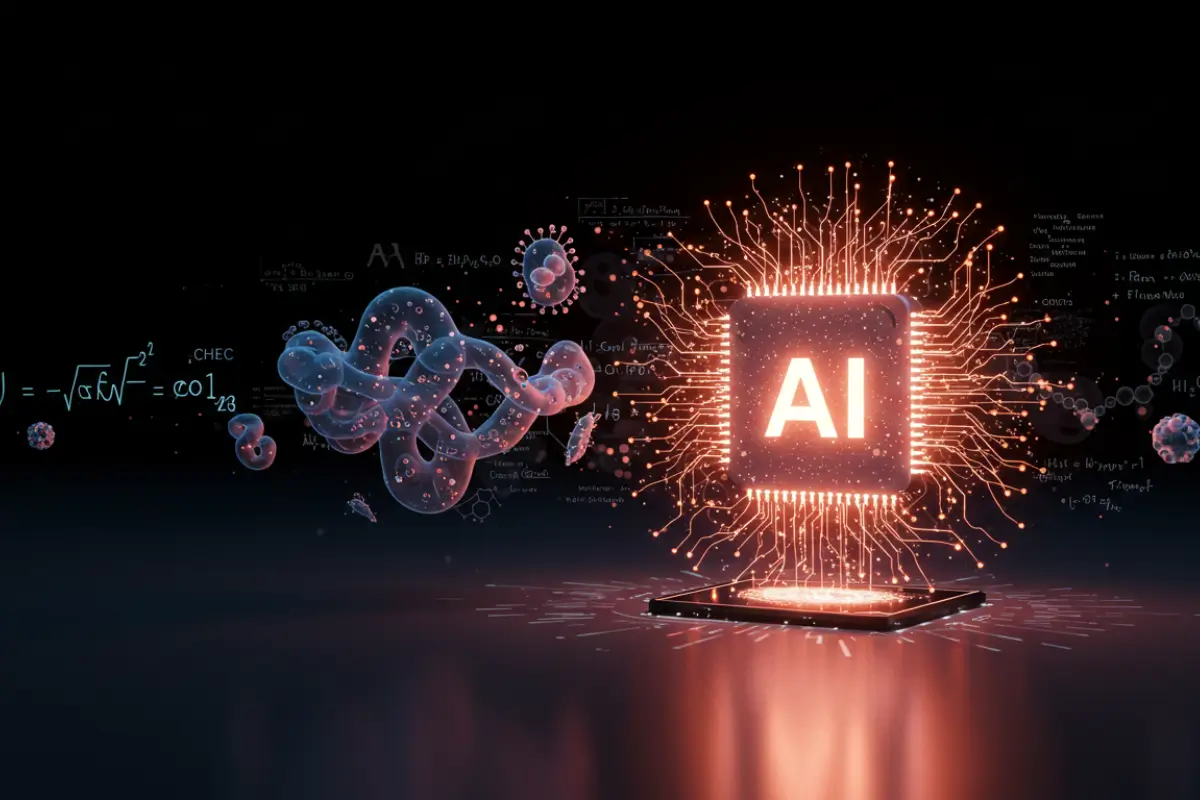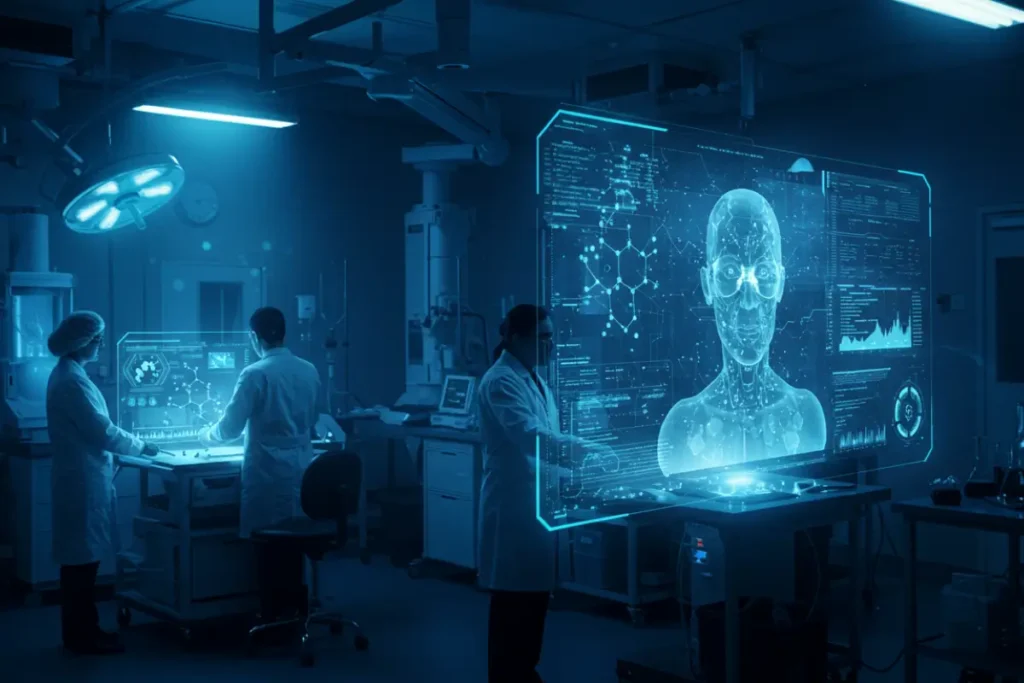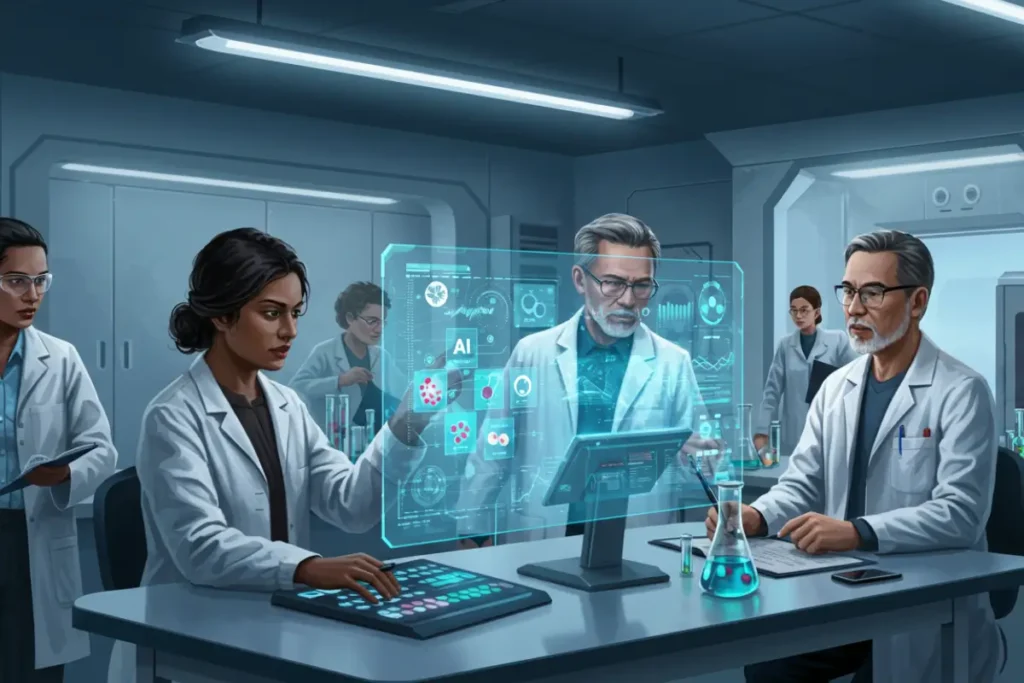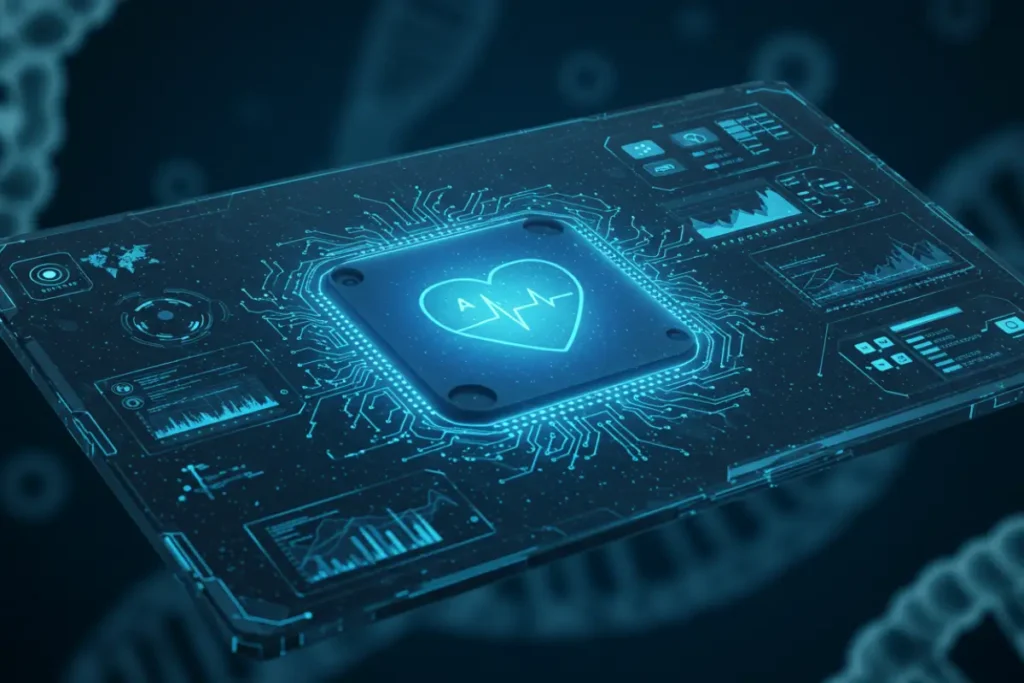Can AI Cure All Diseases?
- May 10, 2025
- 0
So, how do you understand the idea of AI curing all diseases? Sounds like a sci-fi dream, right? But in a world where AI is evolving faster than
So, how do you understand the idea of AI curing all diseases? Sounds like a sci-fi dream, right? But in a world where AI is evolving faster than

So, how do you understand the idea of AI curing all diseases? Sounds like a sci-fi dream, right? But in a world where AI is evolving faster than a video game speedrun, the question is no longer a ‘what if,’ but a ‘when.’
Let me take say to you on a deep dive into how AI is revolutionizing the medical field, what it’s already capable of, and the incredible possibilities on the horizon.
Spoiler alert: we’re not there yet, but we’re closer than you might think.

AI is like that magic wand we’ve all seen in movies — except instead of casting spells, it processes data, analyzes patterns, and makes predictions faster than any human could.
Imagine a world where every single cell in your body is monitored 24/7, with AI detecting abnormalities before they become deadly diseases. Sounds epic, right? But hold on — the reality is a bit more complex.
Currently, AI is already diagnosing diseases like cancer, Alzheimer’s, and even rare genetic disorders more accurately than some trained doctors.
In fact, AI-powered tools like Google’s DeepMind have been breaking ground in predicting protein structures, which is a game changer in drug discovery.
But can it really cure every disease out there? Not so fast. The truth is, while AI can predict, diagnose, and even suggest treatments, the ‘cure-all’ label is still a long way off.
There’s a massive gap between AI’s predictive power and actually curing a disease.
Before we get into whether AI can cure everything, let’s talk about what it’s already doing. From analyzing X-rays to monitoring heart rates, AI has become the Swiss Army knife of the medical world.
Here are some key areas where AI is already making a difference:

Okay, so AI is doing some seriously cool stuff in the medical world, but let’s not get carried away. There are still some pretty big challenges to overcome:

While AI isn’t quite the miracle cure we’re all hoping for, its potential to revolutionize the way we treat diseases is undeniable. Here’s what could be coming next:
So, can AI cure all diseases? Not yet. But it’s certainly making waves in the medical world. With advancements in predictive medicine, personalized therapies, and genetic research, AI is setting the stage for a future where we can detect and treat diseases faster and more effectively than ever before.
If you’re as intrigued by AI’s impact on medicine as I am, you might want to check out my other articles on Futuristic Intellect. Oh, and don’t forget — if you liked this article, drop a comment below and let me know your thoughts! 💬👍
For further reading, you can also check out this in-depth article from MIT Technology Review. Stay curious!